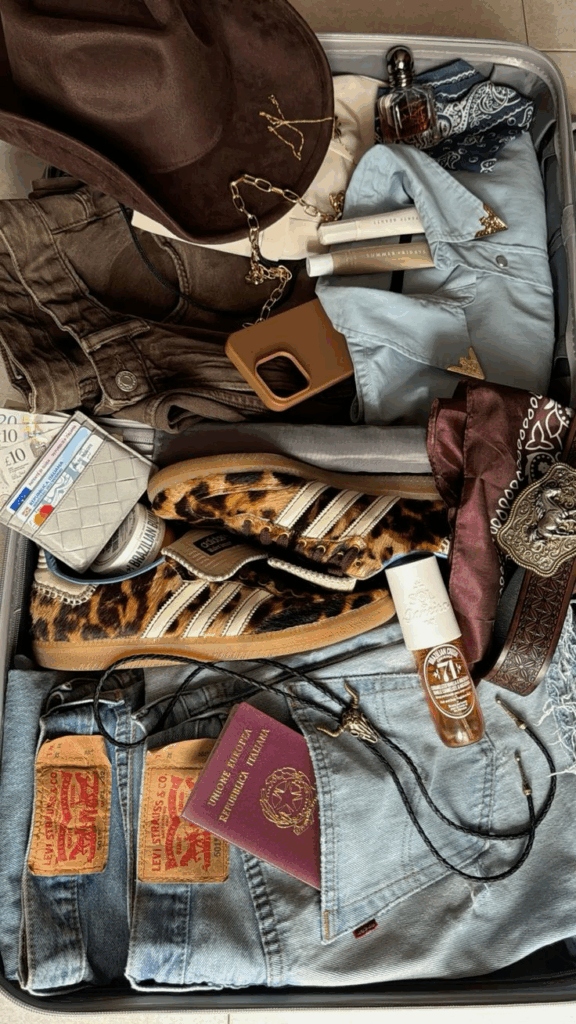After months of uncertainty and limited travel, study abroad is finally back for students at Penn State. Most programs for the spring have been approved, and students are starting to prep for a life-changing semester. Now that the anticipation of program approval is over, there are a few things you should be thinking about over the next couple months prior to departure.
Stay on Top of Tasks
In the months leading up to abroad, it can be easy to feel overwhelmed by the amount of documents and pre-departure tasks you need to keep track of. If you find yourself struggling to stay on top of it all, create a checklist or a spreadsheet so you can visualize everything that needs to be completed. Even though you can always consult with your study abroad advisor, the responsibility is ultimately yours to ensure that everything is done correctly and on time.

Passports and visas are two of the most critical documents you need for studying abroad. If you need a passport or need to renew your current passport, start this process as soon as possible. In terms of visas, consult with your program to see what kind of visa you need, or if you need one at all. This can vary greatly between different countries, so make sure you are following the right guidelines.
Prior to departure, you will need to complete Penn State’s Pre-departure Orientation course. The modules need to be completed this month, and they provide you with a range of information that will be useful before and during your program. In addition to the course, you will be placed in a Yammer group so you can connect with other students in your program.
Do Your Research

Research is one of the most important and exciting parts of study abroad preparations. Spend some time researching the culture and what you should be expecting, so you’re ready to face the culture shock that you may experience at the beginning of your semester. You can also spend time looking into local restaurants, bars, stores, and attractions to kickstart the excitement.
A great way to prepare for your program is by speaking to other students who have studied abroad. Most study abroad programs have methods of connecting with former students, which is definitely something you should take advantage of. Speaking to an alum of your program will give you realistic expectations, insightful tips, and some comfort if you’re starting to feel nervous about moving to another country.
Draft a Budget

Let’s be honest, studying abroad is pretty expensive. From tuition and housing costs, to your extra expenses, it’s likely that your semester abroad will be a lot pricier than any semester you spend here in State College. Whether you’ve been financially preparing for your abroad experience for the past few years, or if you haven’t prepared at all, having a budget will save you from a lot of financial stress.
On your Penn State abroad portal, you can find a financial breakdown of billable and non-billable program expenses. Billable expenses include things such as tuition and housing costs. Non-billable expenses are where it can get a little more confusing. This category includes the money you’ll be spending on traveling when abroad, shopping, eating out, etc. If you want to stick to the amount that the Penn State breakdown sets aside, base your budget on the amount that is designated for those expenses. An Excel sheet is a great way to track spending, but there are also budget apps such as Mint that can help you out.
Pack Strategically

For all the over packers out there, this is probably the part of study abroad prep that you’ve been dreading. If you’ve been fantasizing about bringing multiple bags with all of your clothes, shoes, accessories, you’re in store for a harsh reality check. When deciding what bags to bring abroad, it’s recommended that you only bring what you can handle traveling with by yourself. This means that the most efficient strategy is to bring one large suitcase, a backpack, purse, and possibly an extra duffel or small suitcase if you are able to manage.
The weight of your checked bags also can become an issue when you get to the airport, so keep that in mind when choosing what items to bring. Leave behind shampoo, conditioner, soap, and any other heavy or unnecessary products that can be purchased once you get to your destination. In your carry-on bag, include a few months supply of any medications, contacts, or other essential items for your health. Do not put any of these items in your checked bag, at the risk that they could get lost.
One of the hardest parts of packing for abroad is deciding what outfits to bring. Even though it may be difficult, prioritize practicality over anything else. This doesn’t mean you have to leave behind your cutest clothing items, but it does mean that you should only pack things you will be able to wear multiple times. When it comes to things such as shoes and bags, only bring things that will be comfortable (and stylish) for walking around in your study abroad location, traveling, and attending classes. If it makes it easier, try sticking to a neutral color palette when choosing your study abroad wardrobe.
Are you studying abroad? Tweet us where you’re going, @VALLEYmag, on Twitter.





